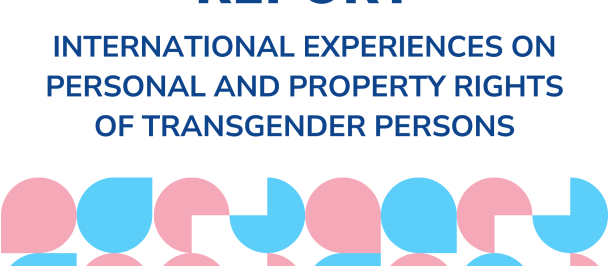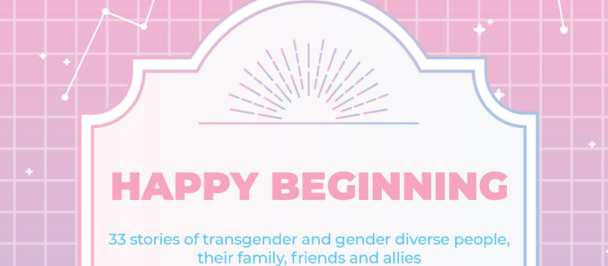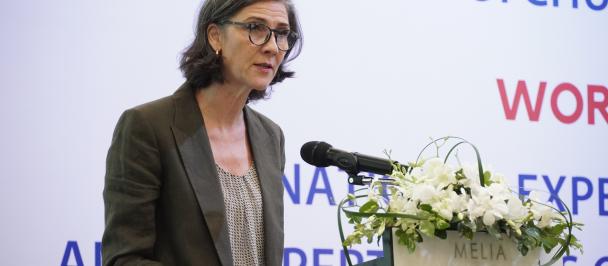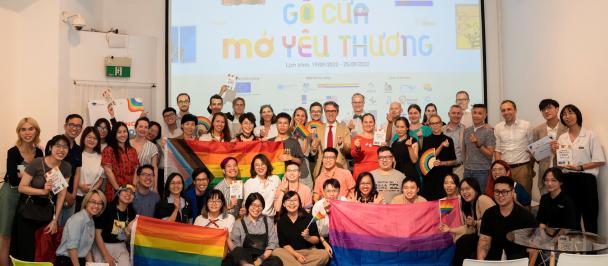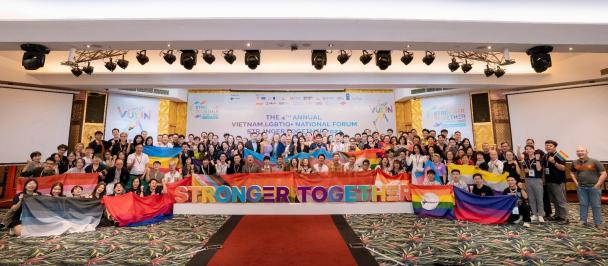Workshop Promotes Rights and Inclusion for Transgender Persons Amid Ha Noi Pride Week
September 20, 2023
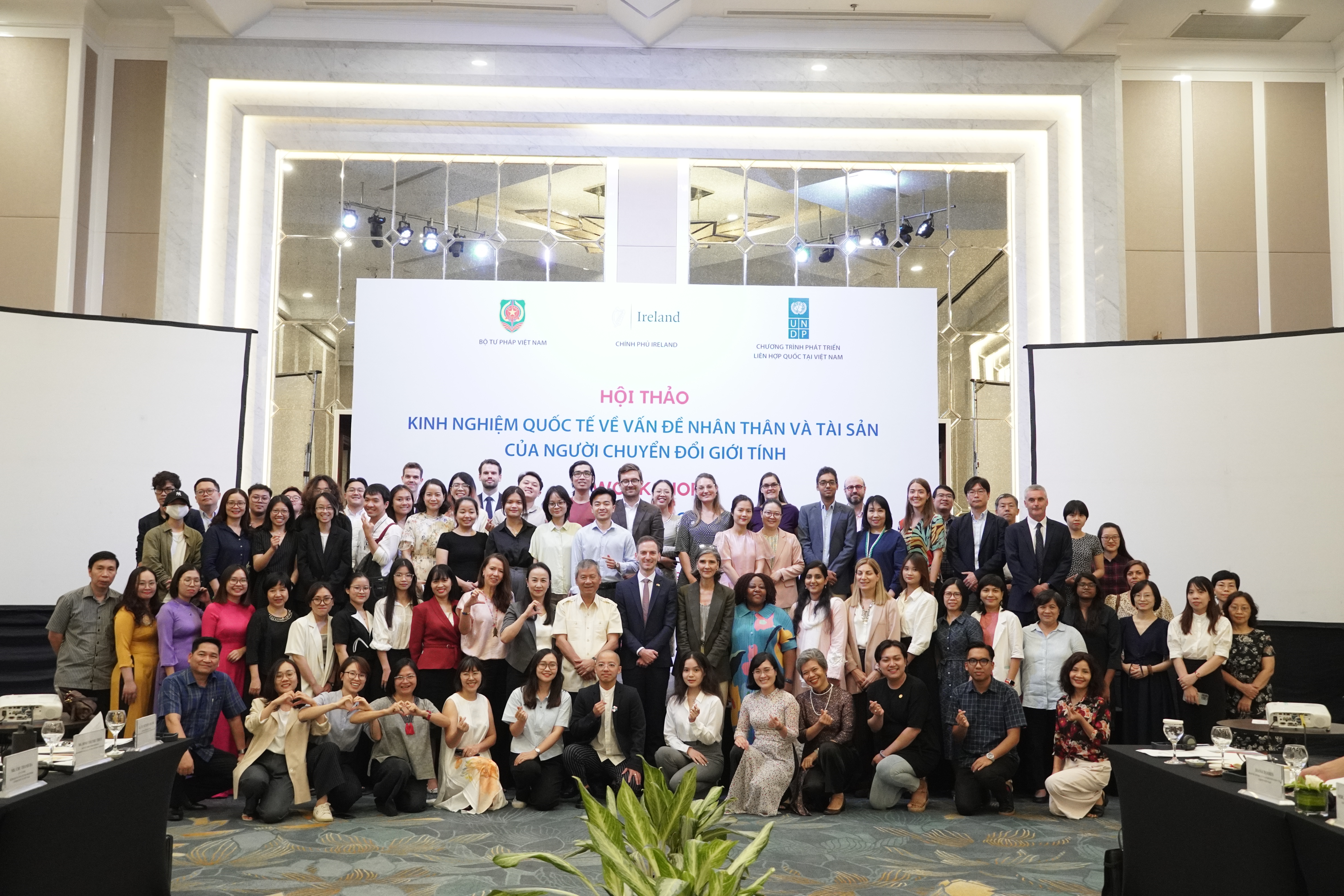
Ha Noi 20 September 2023 - The Ministry of Justice and the UN Development Programme (UNDP) co-hosted a workshop in Ha Noi today for knowledge exchange and dialogue among policy makers, transgender community and academia regarding the rights and challenges faced by transgender persons, particularly in relation to personal and property matters.
With the support from the Embassy of Ireland, the workshop was organized in the context of Ha Noi Pride Week - a celebration of inclusion and diversity. The spirit of the week inspired a constructive dialogue, informing the shaping of the first-ever Gender Affirmation Law in Viet Nam.
Transgender persons often face significant obstacles because their identity documents do not match their lived gender identity. As a result, their access to healthcare, housing, employment opportunities, education and other rights and services are affected by the inability to change their legal gender marker.
In her opening speech, UNDP Resident Representative Ramla Khalidi emphasized the significance of the Universal Declaration of Human Rights, which recognizes the inherent dignity and equality of all individuals, including transgender persons.
“The principle of non-discrimination, as enshrined in international human rights treaties like the International Covenant on Civil and Political Rights (ICCPR) and the International Covenant on Economic, Social and Cultural Rights (ICESCR), both ratified by Viet Nam in 1982, is crucial to uphold the rights of transgender persons,” said Ramla Khalidi. “The achievement of the Sustainable Development Goals (SDGs) would remain incomplete without the inclusion of transgender persons, aligning with the core principle of the 2030 Agenda: Leave No One Behind”. (Read full speech)
The workshop sought to explore how to ensure that transgender persons are not excluded from the benefits of development.
“There is a pressing need to address personal and property issues that arise when an individual undergoes a gender transition”, said Ms. Le Thi Hoang Thanh, Deputy Director General of the Department of Civil and Economic Laws, Ministry of Justice. “To effectively address these matters, it is necessary to seek guidance from international legal experiences. Through consulting international expertise and aligning it with the institutionalization of policies and guidelines of the Party and State, while considering Viet Nam’s specific cultural, social and economic conditions, we can develop well-informed regulations to ensure the legitimate rights and interests of people undergoing gender transitions”.
National Assembly Deputy Mr. Nguyen Anh Tri, who authored Viet Nam’s Gender Affirmation Law, delivered a presentation on the status of gender transformation in Viet Nam and areas that could benefit from refencing international experiences. These include the application of the Law to transgender persons; defining the age criteria within the Law; medical intervention; establishing regulations on marital status in the context of medical interventions or gender recognition procedures for transgender persons; streamlining administrative procedures for recognition; and clarifying the competent authority responsible for confirming/recognizing the gender of transgender persons.
The workshop featured experiences and insights from three different countries - Japan, Pakistan, and Ireland—on their journeys towards advancing legal recognition and social acceptance of transgender persons, with a focus on the fields of personal and property rights.
“Ireland has travelled a long way in this area in a few short years and has brought about significant improvements in legal protection for transgender people. Ireland and Viet Nam have a close and respectful friendship and we are delighted to participate today to share our experience,” said Conor Finn, Deputy Head of Mission, the Embassy of Ireland. “We believe that, with Viet Nam’s draft gender affirmation law, there is a real opportunity to extend legal protection to a community that has been historically and persistently excluded, all over the world”.
***
For more information, please contact:
Nguyen Viet Lan, UNDP Communication Lead, email: nguyen.viet.lan@undp.org; phone: 0914436769

 Locations
Locations